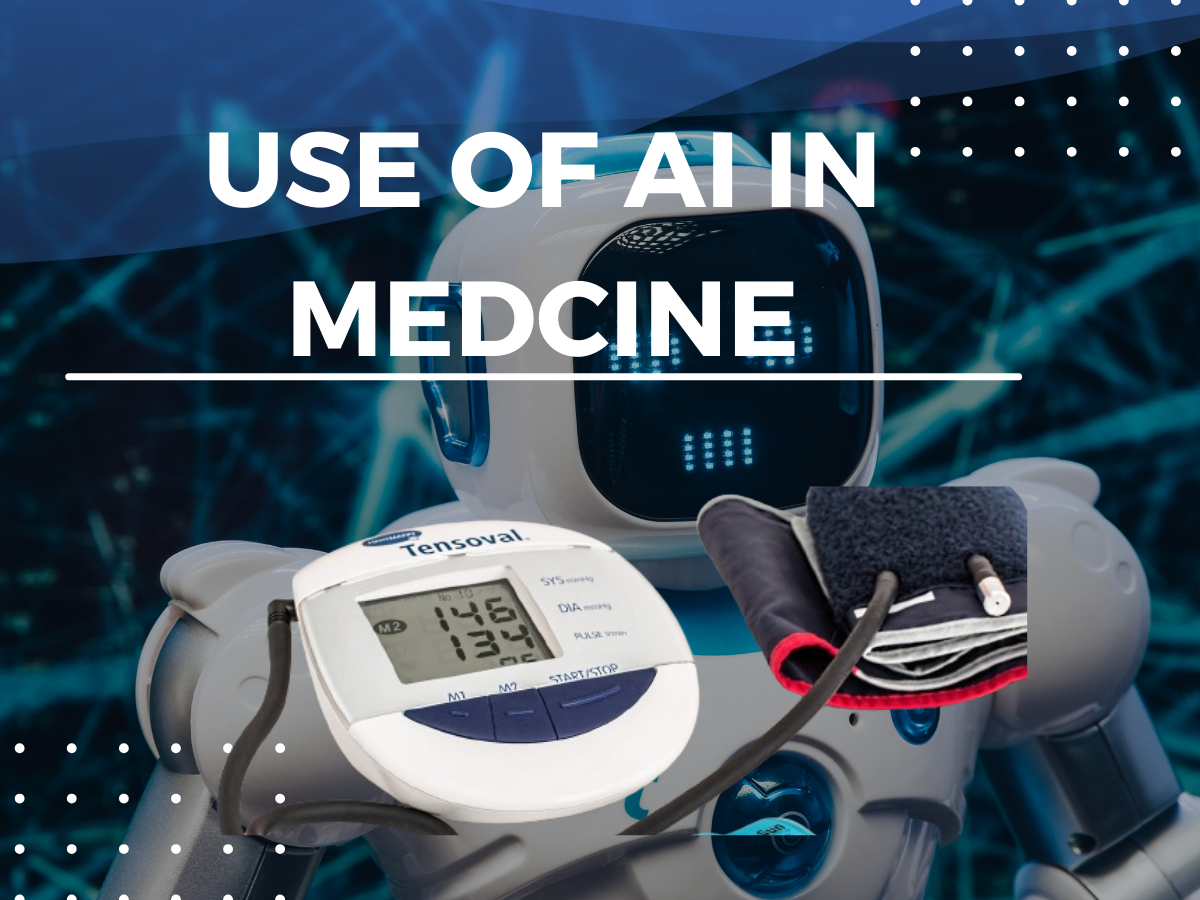Artificial intelligence (AI) is a game-changer in the field of medicine. It provides creative answers to difficult problems and revolutionizing the provision of healthcare. AI is transforming every aspect of healthcare, from drug discovery to medical diagnosis, improving patient outcomes and increasing clinical efficiency.
Artificial Intelligence (AI) in Medicine:
Data analytics and machine learning algorithms evaluate complicated medical data and give precise projections used by physicians making clinical decisions. AI is helpful in early disease identification, customized treatment methods, and improved healthcare delivery.
Applications of AI in Medical Diagnosis
Applications of AI in Medical Diagnosis
Image Identification
Healthcare professionals can use AI-powered imaging techniques like radiology and pathology to evaluate medical images. Deep learning algorithms use medical images and are useful for the early diagnosis of anomalies, cancers, and other pathological disorders. Medical images from CT scans, MRIs, X-rays, and histopathology slides are all analyzed using AI.
Forecasting and Preventing Illnesses
AI evaluates patient data, including genetics, medical history, and lifestyle factors, to forecast the risk of contracting a certain disease. AI identifies risk factors early and makes preventive measures possible to slow the progression of disease and enhance health outcomes.
Medication Discovery;
AI speeds up the drug discovery process by checking molecular interactions and discovering promising drug candidates with therapeutic efficacy. Researchers can more effectively target disease pathways and advance the development of new medications by using virtual screening and predictions.
Advantages of AI in Healthcare:
Enhanced Precision and Effectiveness
Artificial intelligence (AI) evaluates medical data instantly with precision and enables healthcare professionals to make better decisions and act quickly. AI improves productivity and efficiency by automating repetitive processes and optimizing workflows, which lessens the workload for medical practitioners.
Personalized Treatment Plans
AI makes customized medicine possible by evaluating unique patient data and customizing treatment regimens to meet individual requirements and preferences. Artificial intelligence (AI) maximizes therapeutic outcomes and decreases side effects by considering genetic factors, biomarkers, and patient reactions to therapy. This results in more efficient and patient-centered care.
Lowering of Expenses
Predictive analytics and remote monitoring are two AI-driven interventions that can assist healthcare organizations in optimizing resource allocation, cutting down on useless operations, and avoiding unnecessary hospital admissions. Artificial intelligence (AI) facilitates efficient healthcare delivery and resource management by detecting high-risk patients and performing focused interventions.
Challenges and Limitations
Security and Privacy of Data
The application of AI brings concerns concerning patient confidentiality, data privacy, and medicine. To secure patient data and adhere to legal obligations, healthcare companies must put strong data protection mechanisms, encryption techniques, and access controls in place.
Moral Issues
AI in medicine raises ethical concerns since it could treat some patients unfairly without proper oversight and explanations. Furthermore, AI systems require continuous evaluation to guarantee recommendations stay impartial and beneficial as contexts change, with doctors making the final choices using their expertise, empathy, and good judgment instead of being replaced. To prevent harm to patients and communities, it is crucial to address these ethical issues and make sure AI technologies are used responsibly and ethically.
Combining with Current Systems
Interoperability problems, data silos, and aversion to change might make it difficult to integrate AI technologies into current healthcare systems and workflows. To effectively integrate AI solutions and fully leverage their promise in clinical practice, healthcare organizations must invest in infrastructure, training, and stakeholder engagement.
Future Prospects and Innovations
Accurate Medicine
Developments in AI and genomic sequencing technology are propelling the creation of precision medicine strategies based on the unique biological profiles and characteristics of each patient. AI improves patient outcomes for patients with complex diseases by enabling customized treatment plans and targeted medicines by fusing clinical data and genetic insights.
Virtual Health Assistants
AI-powered virtual health assistants, such as chatbots and voice-activated interfaces, provide real-time symptom monitoring, medication reminders, and individualized health advice. With the help of these virtual assistants, patients may take charge of their health, obtain medical services from a distance, and get immediate assistance and direction from medical professionals.
Remote Patient Tracking
Outside of traditional healthcare settings, wearable sensors and AI-enabled remote monitoring devices allow for continuous monitoring of physiological data, vital signs, and disease development. AI helps with early health issue diagnosis, reduces complications, and enhances patient outcomes—especially for chronic illnesses and older populations—by gathering real-time data and offering useful insight.
FAQs
How does AI improve medical diagnosis?
To find trends, abnormalities, and early warning signals of disease, AI algorithms evaluate medical data, including imaging scans, patient records, and genetic information. This results in diagnoses that are made more quickly and accurately.
What advantages does AI-driven personalized medicine offer?
Personalized medicine customizes treatment plans to each patient’s unique traits, preferences, and therapeutic response. This leads to fewer adverse effects, more effective therapies, and better patient outcomes.
What are some examples of AI applications in drug discovery?
By analyzing massive amounts of information, modeling molecular interactions, and identifying promising drug candidates with therapeutic efficacy, artificial intelligence (AI) accelerates the drug discovery process. Predictive modeling, virtual screening, and medication repurposing algorithms are a few examples.
What challenges does AI face in healthcare?
Concerns about data security and privacy, moral questions about disadvantage and justice, and interoperability arise when incorporating AI technologies into current healthcare procedures and systems.
What are the prospects of AI in medicine?
Prospects for the future include AI-enabled remote patient monitoring devices for ongoing health monitoring outside of traditional healthcare settings, virtual health assistants for personalized health advice and remote monitoring, and precision medicine approaches tailored to individual patient characteristics.

[…] AI In Medicine […]